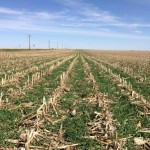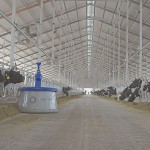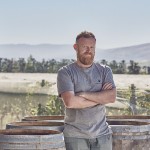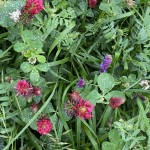Matangi Angus Beef awarded
Not for export, this premium beef from the Tukituki Valley, farmed sustainably, wows judges.
Added 3 years ago
By Brenda Newth

Hawke’s Bay beef farmers Jamie and Nicky Gaddum and their partner Robert Haselsteiner were recent finalists in the prestigious Outstanding Food Producer awards, sponsored by NZ Life & Leisure magazine.
Their beef, sold under the Matangi Angus Beef brand, is grown on two farms in the Tuki Tuki catchment. This year is the first time that Matangi has entered the awards, putting forward two products; bone-in ribeye tomahawk steak, and flatiron steak.
Both products medalled, with the flatiron garnering silver, and the tomahawk, gold. As a gold medal winner the tomahawk is in the running for category champion and the supreme champion awards. And while Matangi didn’t take those further gongs in the final, they were named Coast Kiwis’ Favourite Producer.
More than 300 products were entered in this year’s awards. Thirty judges will assess products for taste, flavour and wow factor, which accounts for 85% of marks. Specialist sustainability judges will review entries awarding 15% of marks on an evaluation of each producer's journey to creating a sustainable business which positively contributes to the environment, its staff and local community.
Judges’ feedback on Matangi’s tomahawk noted the rich golden fat, crisp and flavourful outer crust on the steak and its mellow and balanced flavours.
Nicky Gaddum, business manager Matangi Prime Beef, says as a seasonal producer, their products are only available fresh from October through to late May.
“This year we’ve seen amazing growth in the number of restaurants regularly taking Matangi Angus Beef. Our partner Robert Haselsteiner, brought a European influence that sees the best regional produce kept in the regions for people to enjoy, rather than going offshore.”
Of the gold medal win she says: “it was very exciting to win a medal, and validation of what we’re doing… it’s the icing on the cake,” says Nicky.
On the sustainability front Matangi’s approach centres on quality, not quantity says Jamie Gaddum, farm manager and Matangi Angus Beef director.
“We chose Angus cattle, because they do well in this kind of country. We talked to a Beef & Lamb geneticist about what we wanted to do, the kind of intramuscular fat and the estimated breeding values that we were looking for.
“Once you have the right base, it’s about the management of the animals. How to keep them fed all the time, when to harvest them, how to butcher them, and how to present them to clients.
"Every animal we sell is born on our properties; we don’t buy anything in. With the breeding, we have specifically tailored for the eating quality. That means we can only get to a certain size producing between 120-150 animals each year. We have management policies about reducing stress on the animals. Sustainability is all about looking after our cattle and the land, and it all starts with the microbiology of the soil and soil health; that’s very important.
“Healthy soil means healthy grass, which then produces healthy animals. We have a no nitrogen policy and our fertiliser use has more than halved. Mostly we are trying to use a regenerative ethos; there is always a living root in the soil.
“The animals are a key part of the process, the natural trampling of the grass to rehydrate the soli with all the goodness from the dead grass. To be able to do this we have to carry less stock, but our inputs are less and we move the cattle around more often,” says Jamie.
Other Matangi sustainability initiatives:
- Solar power for farm buildings and fencing
- 2,000-3,000 native trees/shrubs planted annually
- Paper and wool in packaging, where possible
- Carbon neutral freight partner
Join the conversation
Be the first to leave a comment.
Leave a comment
All comments are reviewed before they are published on the website. Your email address will not be published.






